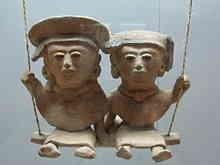Love

Love is a variety of different emotional and mental states, typically strongly and positively experienced, that ranges from deepest interpersonal affection to simple pleasure. An example of this range of meanings is that the love of a mother differs from the love of a spouse differs from the love of food. Most commonly, love refers to a feeling of strong attraction and personal attachment.[1] Love can also be a virtue representing human kindness, compassion, and affection—"the unselfish loyal and benevolent concern for the good of another".[2] It may also describe compassionate and affectionate actions towards other humans, one's self or animals.[3]
Ancient Greek philosophers identified four forms of love: essentially, familial love (in Greek, storge), friendly love (philia), romantic love (eros), and divine love (agape). Modern authors have distinguished further varieties of love: infatuated love, self-love, and courtly love. Non-Western traditions have also distinguished variants or symbioses of these states.[4][5] Love has additional religious or spiritual meaning. This diversity of uses and meanings combined with the complexity of the feelings involved makes love unusually difficult to consistently define, compared to other emotional states.
Love in its various forms acts as a major facilitator of interpersonal relationships and, owing to its central psychological importance, is one of the most common themes in the creative arts.[6]
Love may be understood as a function to keep human beings together against menaces and to facilitate the continuation of the species.
Definition

The word "love" can have a variety of related but distinct meanings in different contexts. Many other languages use multiple words to express some of the different concepts that in English are denoted as "love"; one example is the plurality of Greek words for "love" which includes agape and eros.[8] Cultural differences in conceptualizing love thus doubly impede the establishment of a universal definition.[9]
Although the nature or essence of love is a subject of frequent debate, different aspects of the word can be clarified by determining what isn't love (antonyms of "love"). Love as a general expression of positive sentiment (a stronger form of like) is commonly contrasted with hate (or neutral apathy); as a less sexual and more emotionally intimate form of romantic attachment, love is commonly contrasted with lust; and as an interpersonal relationship with romantic overtones, love is sometimes contrasted with friendship, although the word love is often applied to close friendships. (Further possible ambiguities come with usages "girlfriend", "boyfriend", "just good friends").

Abstractly discussed love usually refers to an experience one person feels for another. Love often involves caring for, or identifying with, a person or thing (cf. vulnerability and care theory of love), including oneself (cf. narcissism). In addition to cross-cultural differences in understanding love, ideas about love have also changed greatly over time. Some historians date modern conceptions of romantic love to courtly Europe during or after the Middle Ages, although the prior existence of romantic attachments is attested by ancient love poetry.[10]
The complex and abstract nature of love often reduces discourse of love to a thought-terminating cliché. Several common proverbs regard love, from Virgil's "Love conquers all" to The Beatles' "All You Need Is Love". St. Thomas Aquinas, following Aristotle, defines love as "to will the good of another."[11] Bertrand Russell describes love as a condition of "absolute value," as opposed to relative value.[citation needed] Philosopher Gottfried Leibniz said that love is "to be delighted by the happiness of another."[12] Meher Baba stated that in love there is a "feeling of unity" and an "active appreciation of the intrinsic worth of the object of love."[13] Biologist Jeremy Griffith defines love as "unconditional selflessness".[14]
Cultural view
Ancient Greek

Greek distinguishes several different senses in which the word "love" is used. Ancient Greeks identified four forms of love: kinship or familiarity (in Greek, storge), friendship and/or platonic desire (philia), sexual and/or romantic desire (eros), and self-emptying or divine love (agape).[27][28] Modern authors have distinguished further varieties of romantic love.[29] However, with Greek (as with many other languages), it has been historically difficult to separate the meanings of these words totally. At the same time, the Ancient Greek text of the Bible has examples of the verb agapo having the same meaning as phileo.
Agape (ἀγάπη agápē) means love in modern-day Greek. The term s'agapo means I love you in Greek. The word agapo is the verb I love. It generally refers to a "pure," ideal type of love, rather than the physical attraction suggested by eros. However, there are some examples of agape used to mean the same as eros. It has also been translated as "love of the soul."[30]
Eros (ἔρως érōs) (from the Greek deity Eros) is passionate love, with sensual desire and longing. The Greek word erota means in love. Plato refined his own definition. Although eros is initially felt for a person, with contemplation it becomes an appreciation of the beauty within that person, or even becomes appreciation of beauty itself. Eros helps the soul recall knowledge of beauty and contributes to an understanding of spiritual truth. Lovers and philosophers are all inspired to seek truth by eros. Some translations list it as "love of the body".[30]
Philia (φιλία philía), a dispassionate virtuous love, was a concept addressed and developed by Aristotle in his Nicomachean Ethics Book VIII[31]. It includes loyalty to friends, family, and community, and requires virtue, equality, and familiarity. Philia is motivated by practical reasons; one or both of the parties benefit from the relationship. It can also mean "love of the mind."
Storge (στοργή storgē) is natural affection, like that felt by parents for offspring.
Xenia (ξενία xenía), hospitality, was an extremely important practice in ancient Greece. It was an almost ritualized friendship formed between a host and his guest, who could previously have been strangers. The host fed and provided quarters for the guest, who was expected to repay only with gratitude. The importance of this can be seen throughout Greek mythology—in particular, Homer's Iliad and Odyssey.
Ancient Roman (Latin) 
The Latin language has several different verbs corresponding to the English word "love." amō is the basic verb meaning I love, with the infinitive amare (“to love”) as it still is in Italian today. The Romans used it both in an affectionate sense as well as in a romantic or sexual sense. From this verb come amans—a lover, amator, "professional lover," often with the accessory notion of lechery—and amica, "girlfriend" in the English sense, often being applied euphemistically to a prostitute. The corresponding noun is amor (the significance of this term for the Romans is well illustrated in the fact, that the name of the City, Rome—in Latin: Roma—can be viewed as an anagram for amor, which was used as the secret name of the City in wide circles in ancient times),[32] which is also used in the plural form to indicate love affairs or sexual adventures. This same root also produces amicus—"friend"—and amicitia, "friendship" (often based to mutual advantage, and corresponding sometimes more closely to "indebtedness" or "influence"). Cicero wrote a treatise called On Friendship (de Amicitia), which discusses the notion at some length. Ovid wrote a guide to dating called Ars Amatoria (The Art of Love), which addresses, in depth, everything from extramarital affairs to overprotective parents.
Latin sometimes uses amāre where English would simply say to like. This notion, however, is much more generally expressed in Latin by the terms placere or delectāre, which are used more colloquially, the latter used frequently in the love poetry of Catullus. Diligere often has the notion "to be affectionate for," "to esteem," and rarely if ever is used for romantic love. This word would be appropriate to describe the friendship of two men. The corresponding noun diligentia, however, has the meaning of "diligence" or "carefulness," and has little semantic overlap with the verb. Observare is a synonym for diligere; despite the cognate with English, this verb and its corresponding noun, observantia, often denote "esteem" or "affection." Caritas is used in Latin translations of the Christian Bible to mean "charitable love"; this meaning, however, is not found in Classical pagan Roman literature. As it arises from a conflation with a Greek word, there is no corresponding verb.
Philosophy view

The philosophy of love is a field of social philosophy and ethics that attempts to explain the nature of love.[48] The philosophical investigation of love includes the tasks of distinguishing between the various kinds of personal love, asking if and how love is or can be justified, asking what the value of love is, and what impact love has on the autonomy of both the lover and the beloved.
Many different theories attempt to explain the nature and function of love. Explaining love to a hypothetical person who had not himself or herself experienced love or being loved would be very difficult because to such a person love would appear to be quite strange if not outright irrational behavior. Among the prevailing types of theories that attempt to account for the existence of love are: psychological theories, the vast majority of which consider love to be very healthy behavior; evolutionary theories which hold that love is part of the process of natural selection; spiritual theories which may, for instance consider love to be a gift from a god; and theories that consider love to be an unexplainable mystery, very much like a mystical experience.
There were many attempts to find the equation of love. One such attempt was by Christian Rudder, a mathematician and co-founder of online dating website OKCupid, one of the largest online dating sites. The mathematical approach was through the collection of large data from the dating site. Another interesting equation of love is found by in the philosophical blog 'In the Quest of Truth'.[49] Love is defined as a measure of selfless give and take, and the author attempted to draw a graph that shows the equation of love. Aggregately, dating resources indicate a nascent line of variables effectively synchronising couples in naturally determined yearning.

Some scientists hold the view that love is caused by the hormone oxytocin being released in to the body, and that love does not truly exist, and that instead it is an evolutionary instinct.[50]
Congratulations @krishnabhusal! You have completed some achievement on Steemit and have been rewarded with new badge(s) :
Click on any badge to view your own Board of Honor on SteemitBoard.
For more information about SteemitBoard, click here
If you no longer want to receive notifications, reply to this comment with the word
STOP